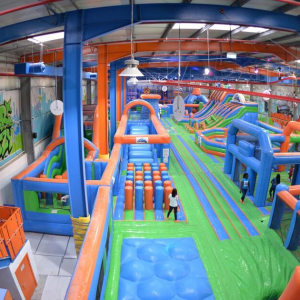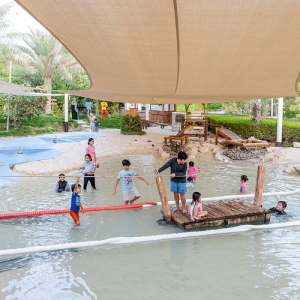The United Arab Emirates (UAE) is renowned for its visionary approach to economic development. While the nation’s prosperity was traditionally built on oil and gas, the leadership has long recognized the need for a diversified economy. One of the most effective strategies in achieving this goal is investing in vocational education.
Vocational education, which provides practical skills and industry-specific training, plays a critical role in equipping the workforce with the competencies needed to support the UAE’s growing sectors. From technology and healthcare to tourism and renewable energy, vocational training ensures the availability of skilled professionals to drive economic growth.
In this article, we’ll explore how vocational education contributes to the UAE’s economic diversification goals, its impact on various sectors, and the initiatives supporting this growth.

The UAE’s Vision for Economic Diversification
The UAE’s leadership has outlined ambitious plans to reduce its reliance on oil revenues. Key initiatives like UAE Vision 2031 and Abu Dhabi Economic Vision 2030 emphasize the development of non-oil sectors. The country is committed to fostering a knowledge-based economy, powered by skilled talent and innovation.

Vocational education is essential to this vision. By preparing Emiratis and residents with the technical and practical skills required in emerging industries, the UAE ensures a sustainable and competitive economy.

Why Vocational Education Matters
Vocational education differs from traditional academic pathways. It focuses on hands-on training and real-world applications, making graduates immediately employable. Here’s why vocational training is vital for the UAE:
- Bridging the Skills Gap: Industries like healthcare, construction, logistics, and IT demand specialized skills. Vocational education provides tailored training to meet these needs.
- Supporting Emiratization Goals: By equipping UAE nationals with industry-relevant skills, vocational programs contribute to increasing Emirati participation in the workforce.
- Promoting Entrepreneurship: Many vocational graduates acquire practical knowledge that empowers them to start their own businesses, further strengthening the SME sector.
- Enhancing Productivity: Skilled workers contribute to operational efficiency, innovation, and higher productivity across sectors.
Sectors Benefiting from Vocational Education
1. Healthcare
The healthcare sector has expanded significantly in the UAE, with the demand for medical professionals on the rise. Vocational programs in nursing, medical technology, and healthcare administration provide specialized training, ensuring a skilled workforce to meet the nation’s healthcare needs.
2. Renewable Energy
As part of its commitment to sustainability, the UAE is investing heavily in renewable energy projects like solar and wind farms. Vocational education in electrical engineering, energy management, and sustainable technologies supports this transition by supplying a skilled labor force.
3. Hospitality and Tourism
Tourism remains a major pillar of the UAE’s economy. Vocational courses in hospitality management, culinary arts, and tourism operations train professionals to provide world-class services, ensuring the country’s status as a top global destination.
4. Technology and Digital Innovation
The UAE has established itself as a regional tech hub. Coding boot camps, cybersecurity certifications, and data analytics courses are growing in popularity, producing tech-savvy professionals to drive the digital economy.
5. Construction and Infrastructure
With constant infrastructural development, the construction sector heavily relies on skilled tradespeople. Vocational training in construction management, civil engineering, and technical maintenance ensures safe and efficient projects.
Government Initiatives and Partnerships
The UAE government actively supports vocational education through various initiatives and collaborations. Here are a few key programs:
- National Qualifications Authority (NQA): Ensures standardized vocational qualifications and promotes lifelong learning.
- Abu Dhabi Centre for Technical and Vocational Education and Training (ACTVET): Offers numerous courses aligned with industry requirements.
- Dubai Institute of Design and Innovation (DIDI): Provides specialized design-focused vocational programs.
- Industry Partnerships: Companies often collaborate with vocational institutions to offer internships, on-the-job training, and mentorship programs.
The Future of Vocational Education in the UAE
The future of vocational education in the UAE looks promising. With increasing investment in specialized training centers and technological advancements, the quality and accessibility of vocational programs will continue to improve.
Furthermore, the integration of artificial intelligence, virtual reality, and simulation-based learning will enhance practical training experiences. These innovations will ensure that graduates are well-equipped to meet the demands of the evolving job market.
Conclusion
Vocational education is a powerful driver of the UAE’s economic diversification. By developing a highly skilled workforce, the country ensures its long-term prosperity across various industries.
For students seeking practical career pathways, vocational education offers hands-on experience and direct entry into rewarding professions. For businesses, it provides access to competent talent that can drive innovation and growth.
The UAE’s commitment to nurturing skilled professionals through vocational training not only supports its economic goals but also solidifies its position as a global leader in sustainable development.
Also read: Emerging Leadership Development Programs in the UAE












